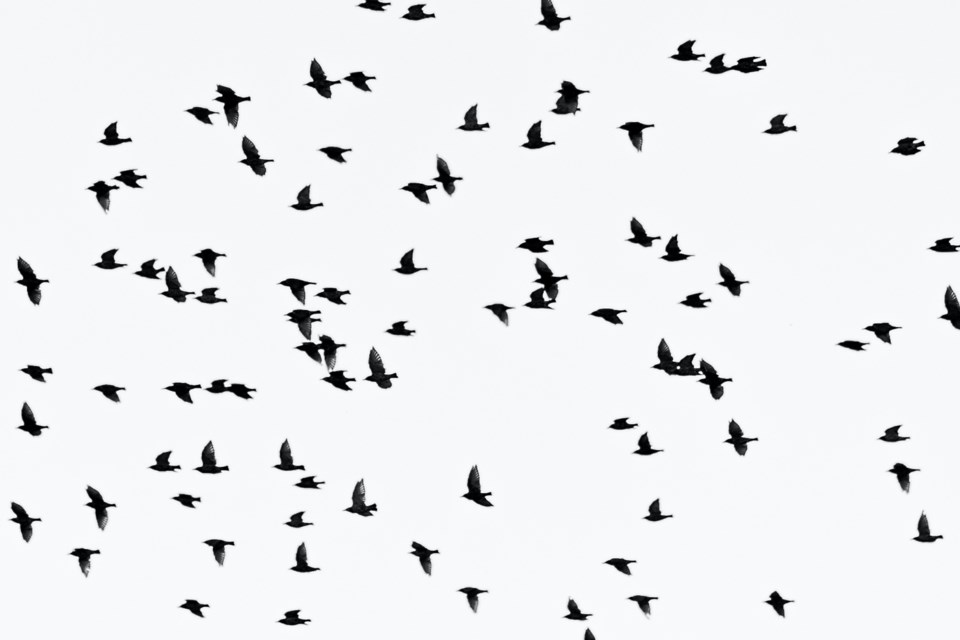BarrieToday welcomes letters to the editor at [email protected]. Please include your daytime phone number and address (for verification of authorship, not publication). The following letter from Barrie resident Gwen Petreman is about bird populations.
*************************
Scientists estimate that there are between 50 billion and 400 billion birds in the world. The number of species is estimated to be around 9,700.
Here in Canada, we have 696 species of birds. We have 501 species of birds just here in Ontario. The most common bird in the world is the domestic chicken.
Approximately 75 per cent of wild birds live for less than a year. The larger the bird, the more likely it is to live longer.
Every year, trees are attacked by billions of insects. Often, the bug attack is so overwhelming the trees will die. Luckily, insect-eating birds will come to their rescue.
Scientists tell us that birds eat around 500 million tons of insects, including 15 million larvae every single year.
Farmers have discovered if they plant fruit orchards near woodlots, the birds from the woodlot will devour most of the insects ready to attack the fruit on the trees. Birds need trees, but it turns out trees need birds as well.
As birds fly all over the forests and elsewhere, the tree seeds in their poop are dropped on the forest floor. Using the fertilizer from the poop, the seeds will quickly sprout into a tree sapling.
Birds’ importance in dispersing tree seeds and others cannot be overstated. An astounding 92 per cent of woody plants are grown from the seeds dropped by birds in their poop.
Every year, billions of animals are killed by vehicles and left on roads or roadsides. Lucky for us, vultures attack the bodies of the dead animals and eat everything but the bones. The acid in the vultures’ stomachs destroys bacteria, spores and toxins. The acid is so corrosive that they can digest carcasses infected with anthrax.
In countries where vultures have declined due to disease, feral dogs have taken over the role played by vultures.
We want to keep vultures healthy as feral dogs spread rabies, which is deadly if left untreated.
Can you guess what is the greatest threat to birds today?
If you guessed buildings/houses or vehicles, or wind turbines, or pesticides, or power lines, or hunting you would be wrong. Cats are responsible for killing an astounding 196 million birds each and every single year in Canada — more than power lines, houses, pesticides, vehicles, hunting, and buildings combined.
Domestic cats kill over 200,000 birds every day — a little over 8,000 birds every single hour of the day.
As well as killing birds, free-range cats, including pet cats, cause unimaginable harm to our fragile ecosystem by competing with native predators for food, carrying diseases to other species, and mating with native wildcats.
Cats are an example of an introduction of an invasive species wreaking havoc on our ecosystem.
Gwen Petreman
Barrie
*************************



